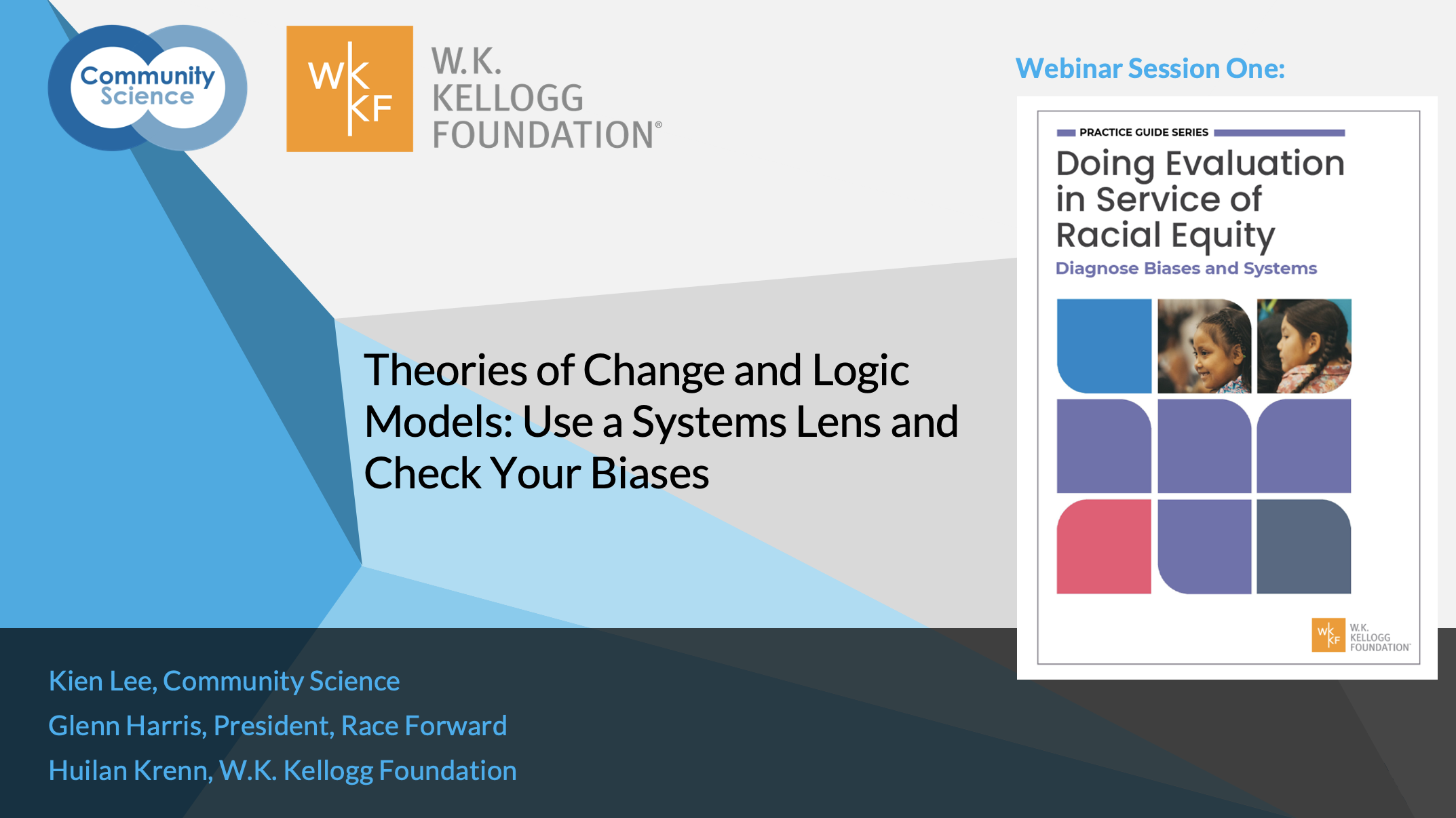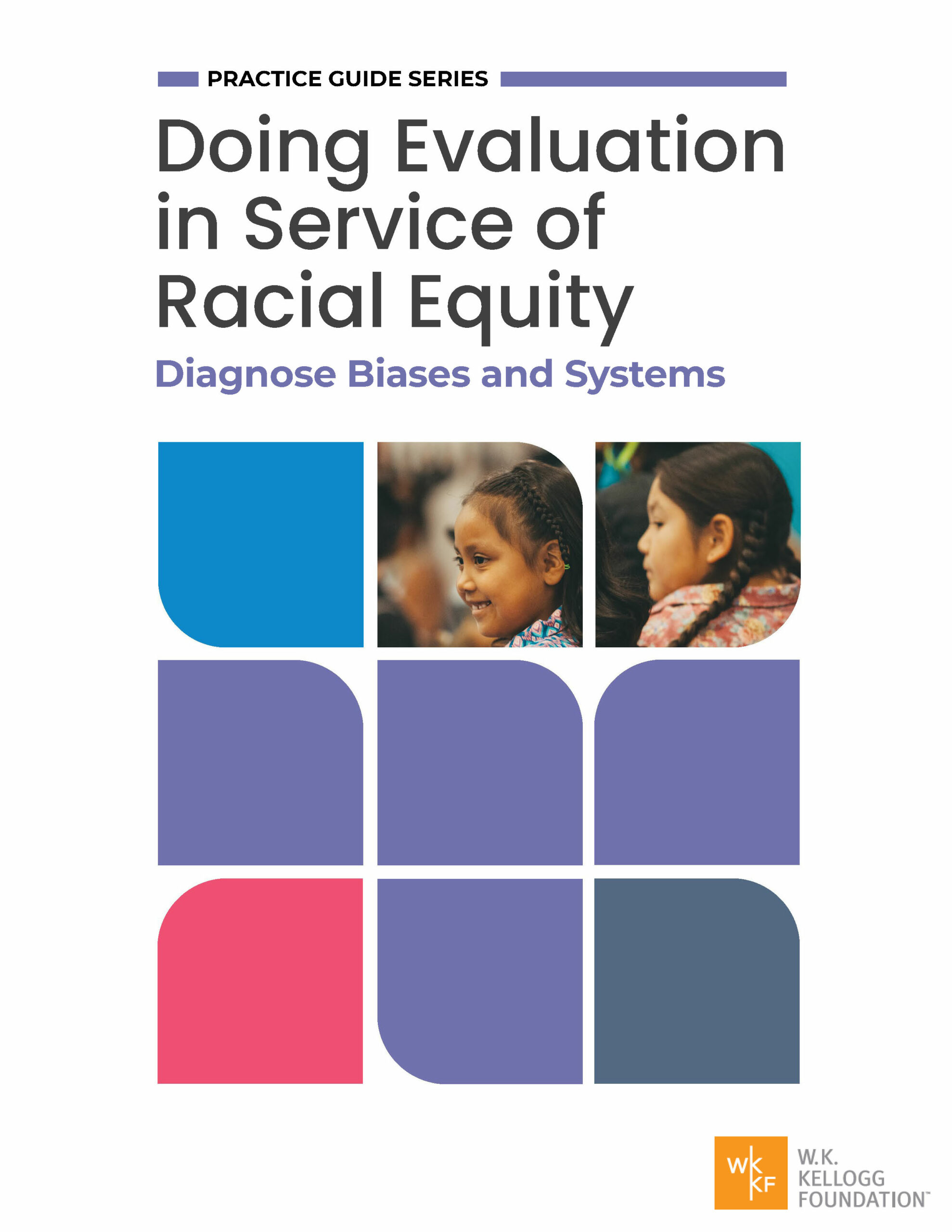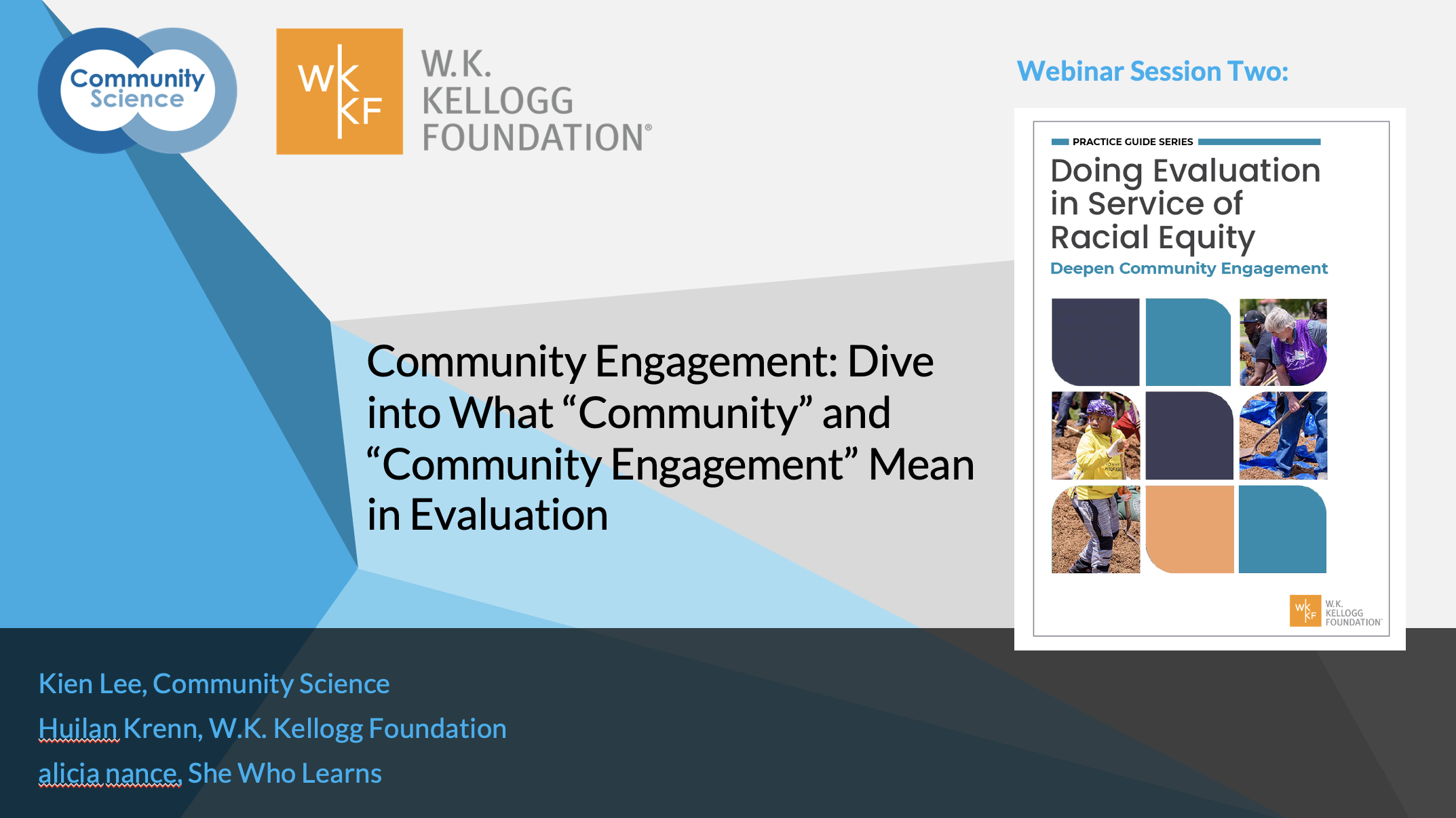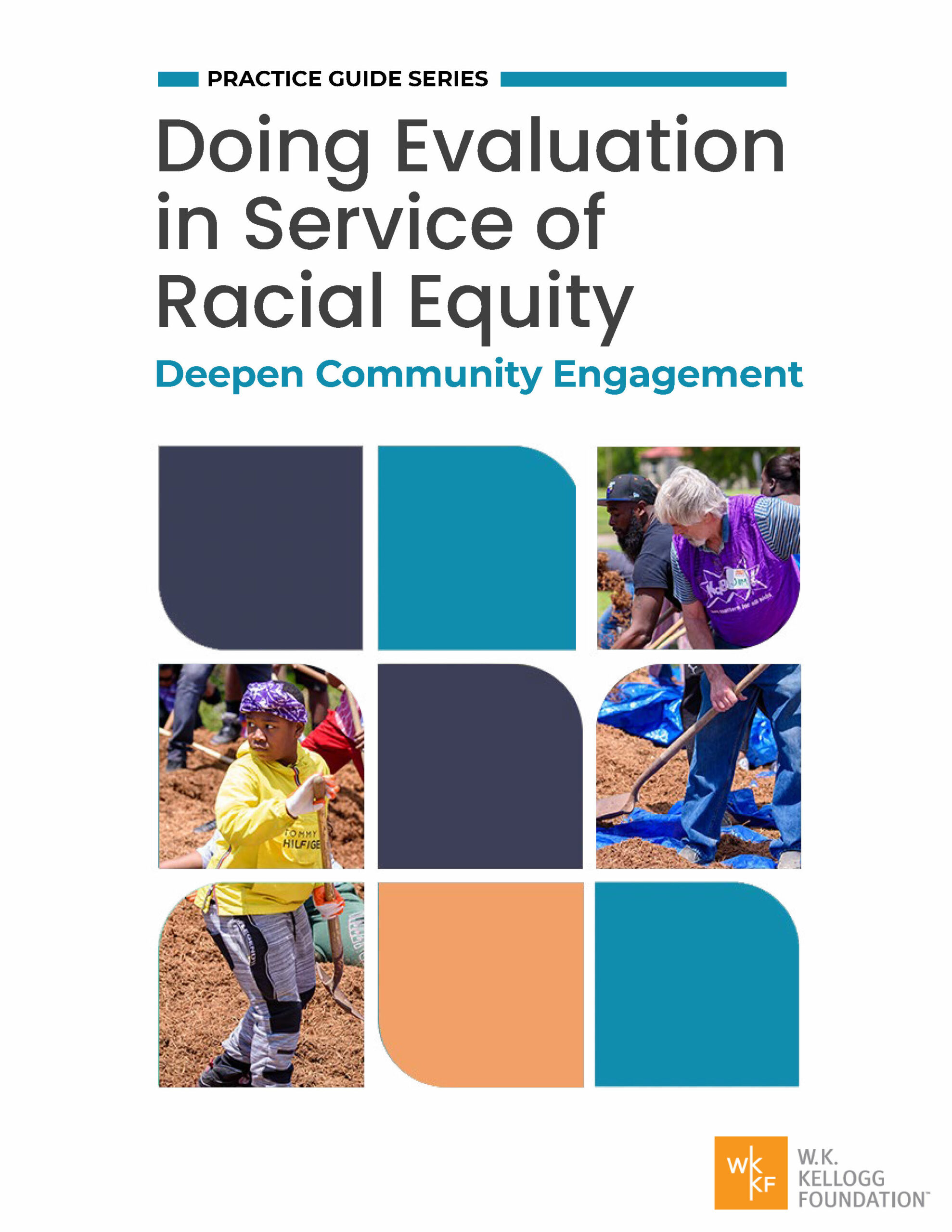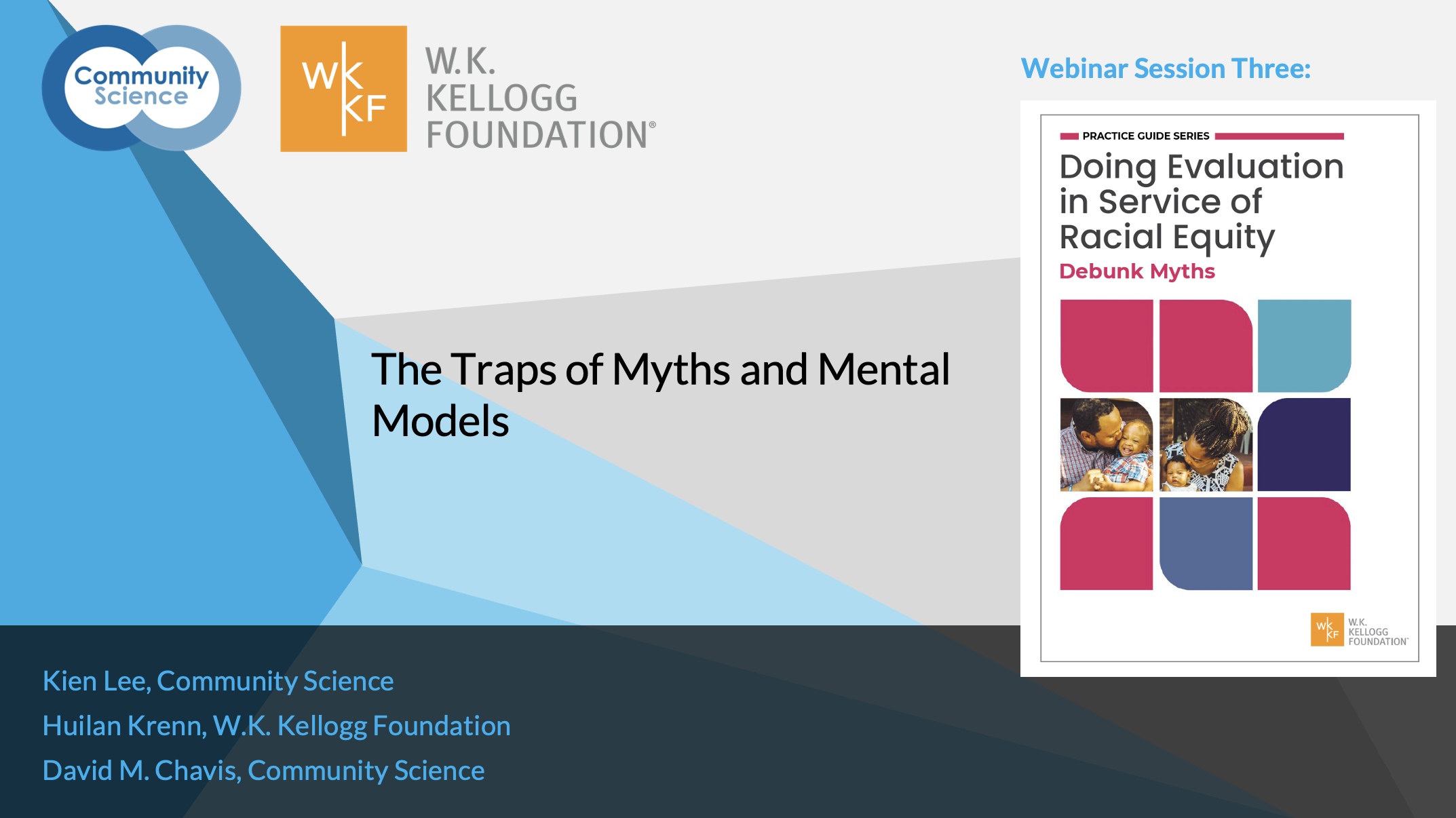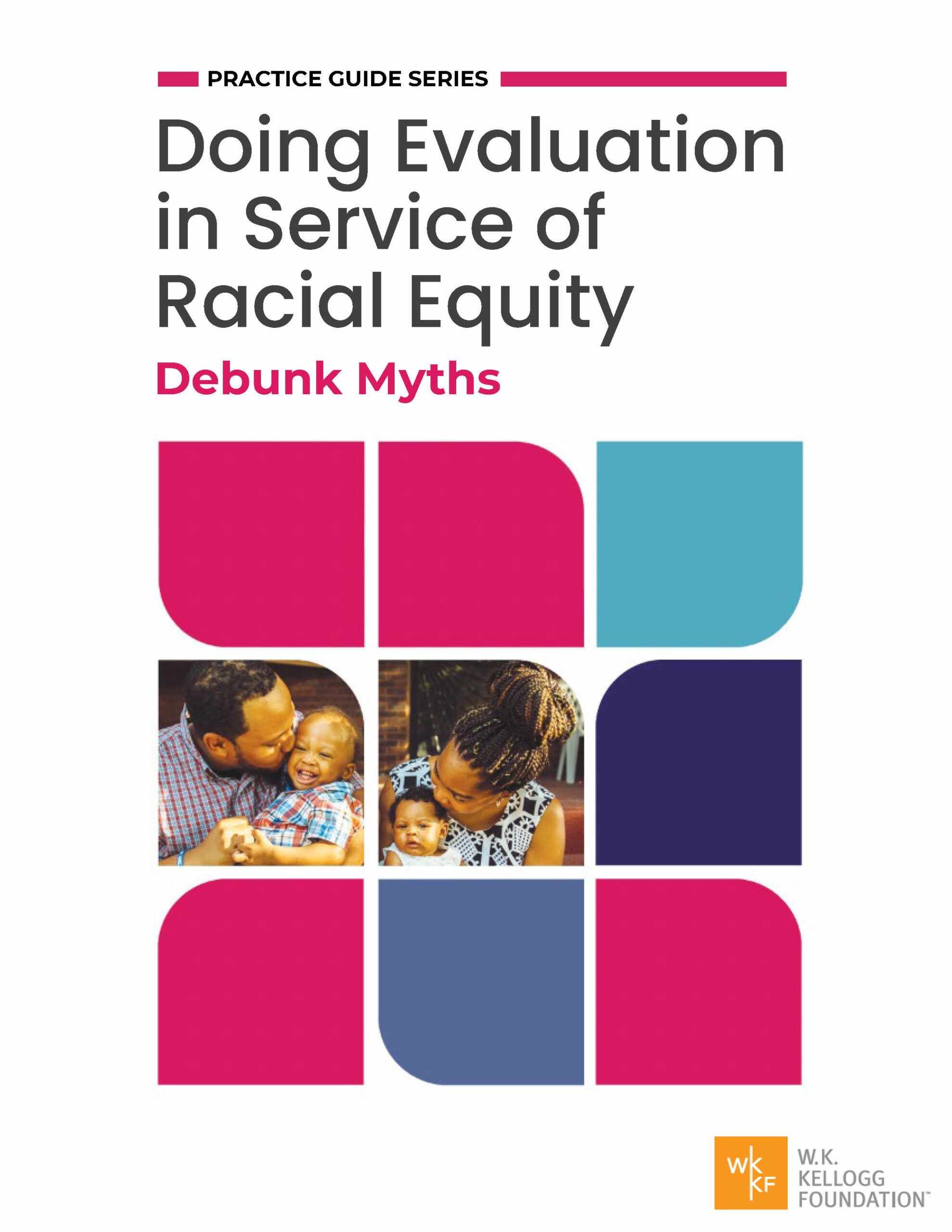This three-part webinar series was presented in January 2022 and centers on a series of three guides Doing Evaluation in Service of Racial Equity, commissioned by the W.K. Kellogg Foundation and authored by Community Science. During the webinars, information and resources from the guides were shared.
Session One: Theories of Change and Logic Models: Use a Systems Lens and Check Your Biases
Evaluators routinely facilitate the development of theories of change and logic models, from which outcome measures are identified and monitored. Doing evaluation in service of racial equity requires evaluation practitioners to help develop these theories and logic models with an eye toward racial equity. What does this mean? What mindset, approach, knowledge, and skills do evaluation practitioners need to develop and continuously hone to ensure that the theory and logic model don’t ignore, dismiss, or underestimate the role of structural racism?
In session one of this webinar series, the presenters will review the “tree” – a metaphor for operationalizing a systems lens to inform a theory of change and logic model that focuses on racial equity as the ultimate impact. The tree explores the racial and ethnic disparities we observe and experience and the reasons for these disparities, which are deeply rooted in racial biases that are baked into our institutions, relationships, policies, and practices. Webinar participants will leave the webinar with a set of initial questions to ask when applying the systems lens.
Click above to play the video from Session One.
Session Two: Community Engagement: Dive into What “Community” and “Community Engagement” Mean in Evaluation
Community and community engagement can mean a lot of things, depending on who you are, where you are “located” in the ecosystem of organizations that are trying to effect social change, and how you were trained as a social scientist. Yet, evaluators, funders, and capacity builders don’t take enough time to discuss who we each mean by community and community engagement. In doing evaluation in service of racial equity, what makes the idea of community and community engagement different?
In session two of this webinar series, the presenters will start with their definition of community, the ways in which community can be engaged, and more important, the purpose of community engagement. Then, they will discuss the role evaluators and evaluation play in amplifying community and community engagement in pursuit of racial equity. They will lift up a few examples of situations of how community and community engagement have unfolded in evaluation and the considerations that should have been seriously weighed ahead of time before implementation of the strategy or program and evaluation. Participants will leave the webinar with a framework and systematic process for understanding community.
Click above to play the video from Session Two.
Session Three: Evaluation is Part of Strategy Design: Explore Mental Models About Evaluation that Get in The Way
The first two webinar sessions have significant implications about the practice of evaluation in service of racial equity—evaluators and evaluation must be part of strategy design. If evaluation is seen as part of feedback loops, learning, and strategy improvement, then it should be integrated into the strategy design and implementation systematically and consistently—not as an after-thought, a requirement to check off, or a punitive tool. Yet, there are still norms, practices, and mental models that get in the way of people perceiving evaluation as helpful and intentionally using it for learning and strategy improvement. Consequently, doing evaluation in service of racial equity will continue to be challenged.
In this last webinar of the series, the presenters will share some of the common myths about evaluation that get in the way of using evaluation to support progress toward racial equity. Participants will leave the webinar with a set of preliminary questions they can ask to assess the degree to which these myths underlie their institutions’ policies, procedures, and practices about evaluation and how evaluation can help them continuously learn and become better at addressing structural racism.
Click above to play the video from Session Three.

